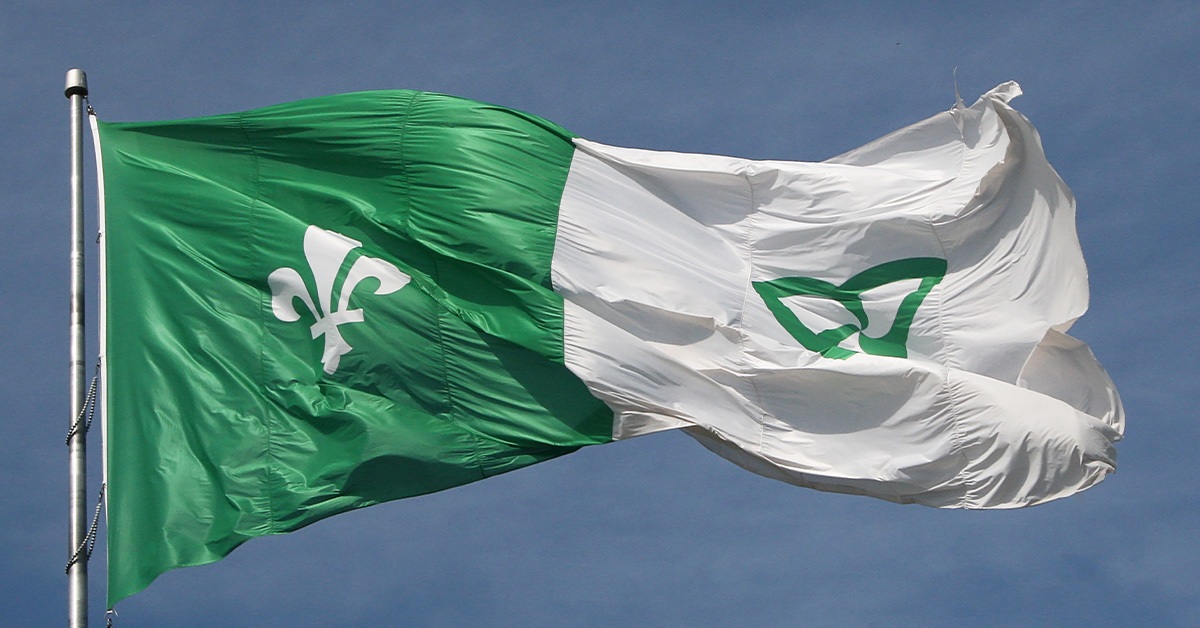On This Page You Will Find
- Canada’s goals for Francophone immigration
- Best provinces for Francophone newcomers
- Services and support for French-speaking immigrants
- Benefits of living in French outside Quebec
- FAQs about Francophone immigration in Canada
Canada’s Growing Francophone Communities Outside Quebec
Canada is home to vibrant French-speaking communities beyond Quebec, and the federal government is working hard to help them grow.
If you speak French and are considering immigration to Canada, you can live and thrive in French in many provinces and territories.
As part of its 2025–2027 Immigration Levels Plan, Canada has set clear goals to welcome more Francophone immigrants outside Quebec:
| Year | Target | % of Total Permanent Residents |
| 2025 | 29,325 | 8.50% |
| 2026 | 31,350 | 9.50% |
| 2027 | 31,500 | 10.00% |
In 2024, Canada surpassed its target by welcoming 7.21% French-speaking immigrants outside Quebec – a significant rise from just 1.21% in earlier years.
Related news
- Best Area in Canada to Live as a Newcomer
- French-Speaking Immigration In Canada Outside Quebec Setting Records
- Newcomers guide to renting vs. buying in Canada
Why Immigrate to a Francophone Community Outside Quebec?
French-speaking newcomers can find opportunities and community life across Canada. The government’s goal is to strengthen the French language in minority communities and make it easier for Francophones to settle, work, and live in their preferred language.
Benefits of Settling in French Communities:
- Access to jobs in your field in French or bilingual environments
- French-language schools and community services
- Cultural centres, events, and Francophone associations
- Pathways to permanent residence that prioritize French speakers
Top Provinces and Regions With Francophone Communities
Francophone communities across Canada offer newcomers the chance to live, work, and thrive in French – often while gaining exposure to English as well. These regions blend bilingual services, cultural pride, and economic opportunity, helping French-speaking immigrants settle more easily outside Quebec.
Ontario – Canada’s Largest Francophone Community Outside Quebec
Ontario is home to over 600,000 French speakers, the largest Francophone population outside Quebec. The province offers rich cultural life, vibrant communities, and strong support for newcomers in French.
- Ottawa, the nation’s capital, is officially bilingual. Francophone newcomers will find bilingual schools, hospitals, and a wide range of jobs in public service, education, and technology.
- Toronto, while predominantly English-speaking, offers a growing network of Francophone services, French schools, and professional associations.
- Northern Ontario cities like Sudbury, Hearst, and Timmins have long-established French-speaking communities. Life here is quieter, more affordable, and deeply rooted in bilingual traditions.
Life in Ontario’s Francophone communities offers a balance of urban opportunity and small-town friendliness, with festivals, cultural centres, and community support easily available in French.
New Brunswick – Canada’s Only Officially Bilingual Province
New Brunswick is unique in Canada for being officially bilingual at the provincial level. About one-third of its population speaks French, with strong Acadian roots influencing culture, education, and government.
- Moncton is a growing urban centre with many bilingual employers, including government offices, call centres, healthcare, and education.
- Edmundston, Bathurst, and Campbellton are smaller towns where French is the dominant language and community life is rich with Acadian traditions.
Francophone newcomers here enjoy French-language services everywhere, including hospitals, government offices, and schools. Cultural events like the Acadian World Congress celebrate heritage and unity, making it a welcoming place for new arrivals.
Manitoba – A Blend of Prairie Life and Francophone Culture
Manitoba offers a peaceful and welcoming environment for French-speaking immigrants, especially in Winnipeg, where the Saint-Boniface neighbourhood is the heart of the province’s Francophone life.
- Saint-Boniface has French-language schools, a university, a hospital, and cultural landmarks like the Centre culturel franco-manitobain.
- The city hosts French festivals like Festival du Voyageur, showcasing music, food, and Métis heritage.
Newcomers enjoy a low cost of living, accessible housing, and welcoming communities. Employment opportunities in Manitoba are growing in health care, skilled trades, and the service sector, and many employers value French skills.
Alberta – Fast-Growing and Multicultural
Alberta is known for its booming economy and diverse immigrant population. The Francophone community here is growing fast, especially in:
- Edmonton, home to the Campus Saint-Jean at the University of Alberta and several French-language schools.
- Calgary, where French-speaking newcomers can find bilingual employment and family-oriented services in French.
Alberta’s Francophone associations offer community events, newcomer support, and language services. Life here combines economic opportunity, a multicultural environment, and access to nature, with the Rocky Mountains nearby.
Nova Scotia – Acadian History and Coastal Charm
Nova Scotia is home to vibrant Acadian communities that date back centuries. French-speaking newcomers will find a strong sense of tradition and community, especially in:
- Clare and Argyle (southwest Nova Scotia), and Chéticamp on Cape Breton Island, where French is still widely spoken and taught.
- Halifax, the capital, also offers French-language services, schools, and community organizations.
Nova Scotia’s Francophone regions offer a coastal lifestyle, tight-knit communities, and access to nature and the arts. Acadian music, food, and festivals are part of everyday life.
British Columbia – Urban Living with French Connections
While primarily English-speaking, British Columbia has a growing Francophone population, especially in:
- Vancouver, where Francophone schools, cultural centres, and bilingual businesses are increasing.
- Victoria and Kelowna also have active French-speaking groups and French-language programs.
Life in B.C. offers mild weather, natural beauty, and multiculturalism. Francophone immigrants here often enjoy bilingual social networks and work in tech, education, hospitality, or public service.
Other Notable Regions
- Prince Edward Island has deep Acadian roots and offers services in French in regions like Evangeline and Summerside.
- Saskatchewan has Francophone communities in places like Gravelbourg and Regina, with a strong rural tradition and growing settlement services.
Programs and Support for Francophone Newcomers
- Francophone Immigration Pathways: Programs like Express Entry offer additional points for French proficiency. Canada launched the Francophone Community Immigration Pilot in January 2025. Some of the provinces also target French speakers through their Provincial Nominee Programs.
- Settlement Services: Francophone newcomers can access language training, job search help, and community orientation in French through Réseau en immigration francophone and Francophone Settlement Agencies.
- Education and Childcare: Many provinces offer French-language public schools and childcare options.
- Healthcare in French: Some regions provide healthcare professionals and services in French to ensure comfort and clarity.
Life in a French-speaking Minority Community
Living in French outside Quebec is possible and rewarding. You can enjoy a bilingual lifestyle, build connections, and access both English and French work and education opportunities.
Whether you’re a professional, student, or family, Canada’s Francophone regions are ready to welcome you with open arms and support tailored to your needs.
FAQs
Can I immigrate to Canada in French without going to Quebec?
Yes. Canada has programs that prioritize French-speaking immigrants who want to live outside Quebec. You can apply through Express Entry or provincial programs targeting Francophones.
What support is available for Francophone newcomers?
You can access services like job help, language training, and community integration in French through local organizations supported by the Canadian government.
Are there French-language schools outside Quebec?
Yes. Every province and territory offers public French-language education for children and youth, and many regions also have French daycare and post-secondary options.
Do I need to speak English too?
While speaking English can help with jobs and everyday life, many Francophone communities offer support in French. Bilingualism is a benefit but not always a requirement.
How do I find Francophone communities outside Quebec?
Start by looking into areas like Ottawa, Moncton, Saint-Boniface (Winnipeg), and Halifax. You can also contact Francophone immigration networks and settlement agencies in your chosen province.



